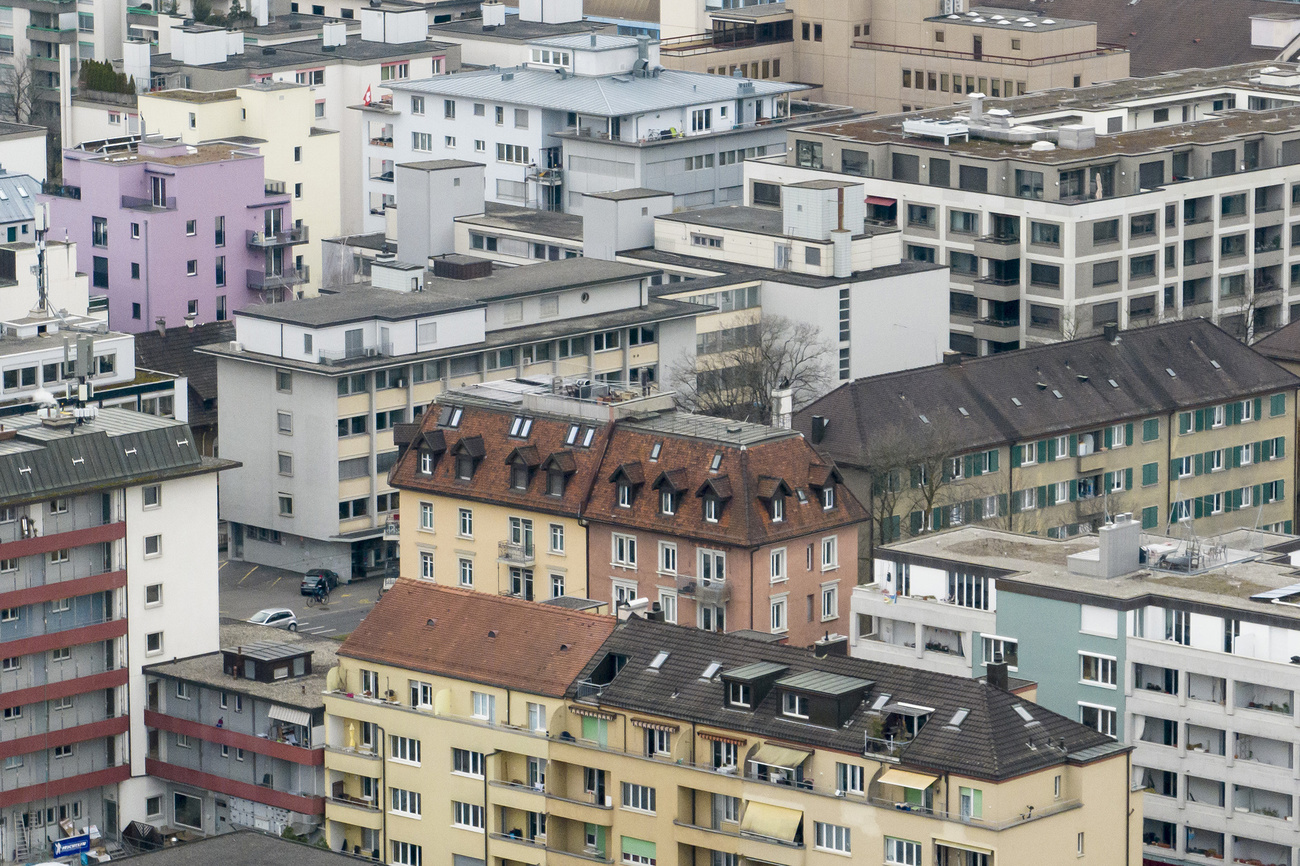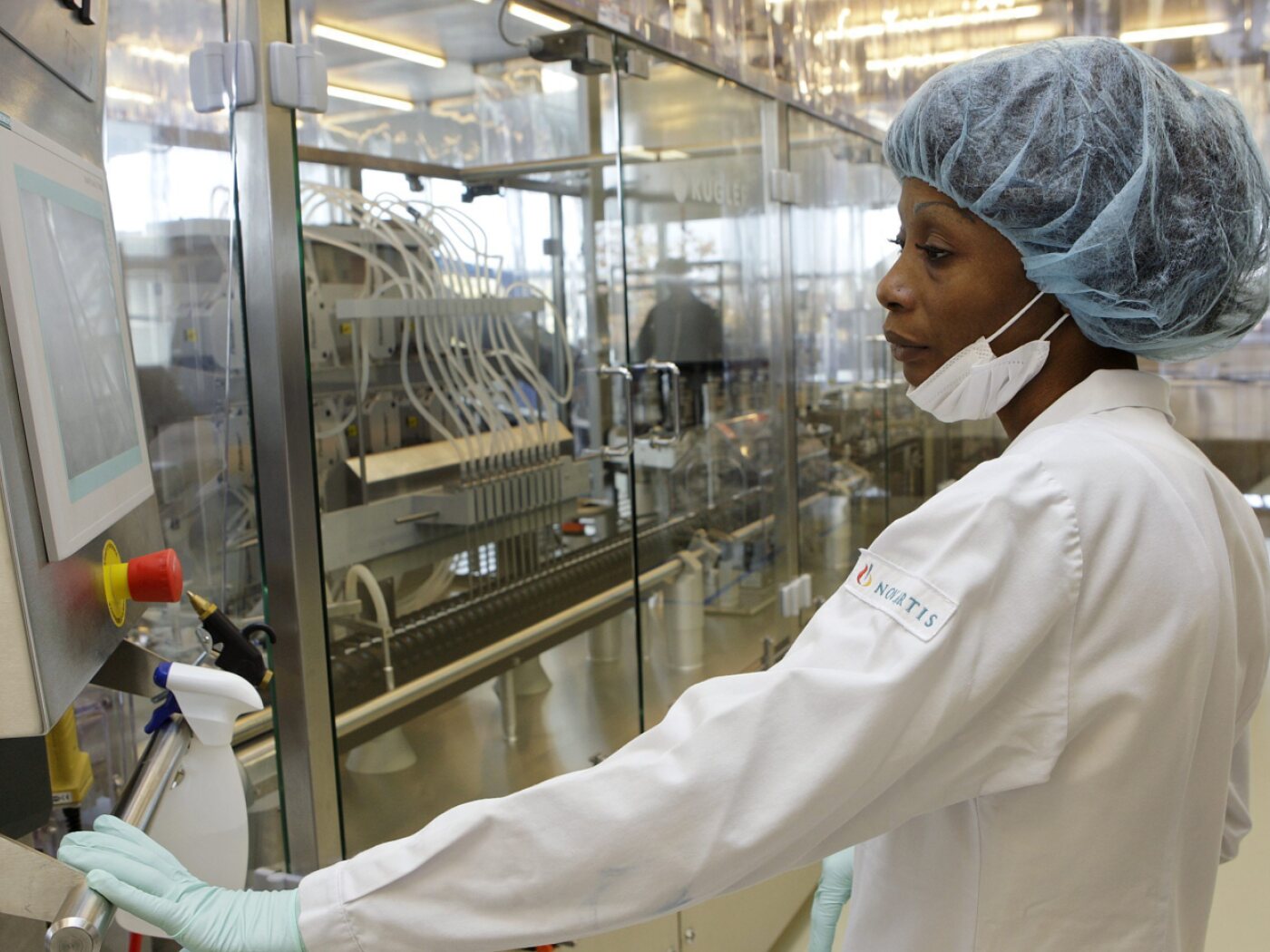Tough Swiss housing market drives densification, study finds

As empty and affordable apartments continue to be a rare commodity in Switzerland, rising rents are pushing people to live closer together, a study writes.
The Swiss housing market has tipped from oversupply to housing shortage at a high and “historically unique speed”, wrote economists from Raiffeisen Switzerland in the “Real Estate Switzerland – 4Q 2023” study, published on Thursday. With supply not increasing despite high demand, the densification required by spatial planning inevitably occurs on the demand side – via the price.
This leads to ever-increasing housing costs, laborious and lengthy searches for accommodation, drastic compromises in terms of space requirements, location quality and occupancy density or longer commutes for people looking for accommodation. The result is a loss of prosperity that will continue to worsen as long as 10,000-15,000 apartments too few are built each year, according to the authors.
+ ‘Myth’ of spiking Swiss rents comes under scrutiny
Since the new spatial planning law makes it significantly more difficult and sometimes even impossible to zone building land, cities in particular should be densified. However, it is said that this is being significantly slowed down by a flood of objections, over-regulation in the construction sector, hoarding of building land, a lack of willingness to increase zoning in large cities and, most recently, by rising construction prices and financing costs.
According to Raiffeisen, the result of this is “involuntary densification”: the lack of living space forces people to use less space and to group together in larger households.
Robust home market
Even two years after the end of the low interest rate phase, the prices for owner-occupied residential property are defying the interest rate turnaround. According to the information, demand is significantly lower than in recent years and fewer home transactions are taking place. In addition, the number of properties offered for sale continues to rise slightly, as does the number of vacant homes.
+ Why is Switzerland a ‘country of tenants’?
Nevertheless, the supply remains low. Therefore, the previously extremely dynamic price growth has so far only normalised. In certain regions, however, property prices have fallen slightly on an annual basis for the first time, such as condominium prices in the Bern and Eastern Switzerland regions. In general, condominium prices are slowly cooling, according to the study.
“All signs point to a soft landing for the home market, which has been overheated at times in the past,” Raiffeisen chief economist Fredy Hasenmaile said in the study. This also included some quarters with moderate declines in home prices. Raiffeisen expects this from 2024.
This news story has been written and carefully fact-checked by an external editorial team. At SWI swissinfo.ch we select the most relevant news for an international audience and use automatic translation tools such as DeepL to translate it into English. Providing you with automatically translated news gives us the time to write more in-depth articles. You can find them here.
If you want to know more about how we work, have a look here, and if you have feedback on this news story please write to english@swissinfo.ch.

In compliance with the JTI standards
More: SWI swissinfo.ch certified by the Journalism Trust Initiative

















You can find an overview of ongoing debates with our journalists here . Please join us!
If you want to start a conversation about a topic raised in this article or want to report factual errors, email us at english@swissinfo.ch.